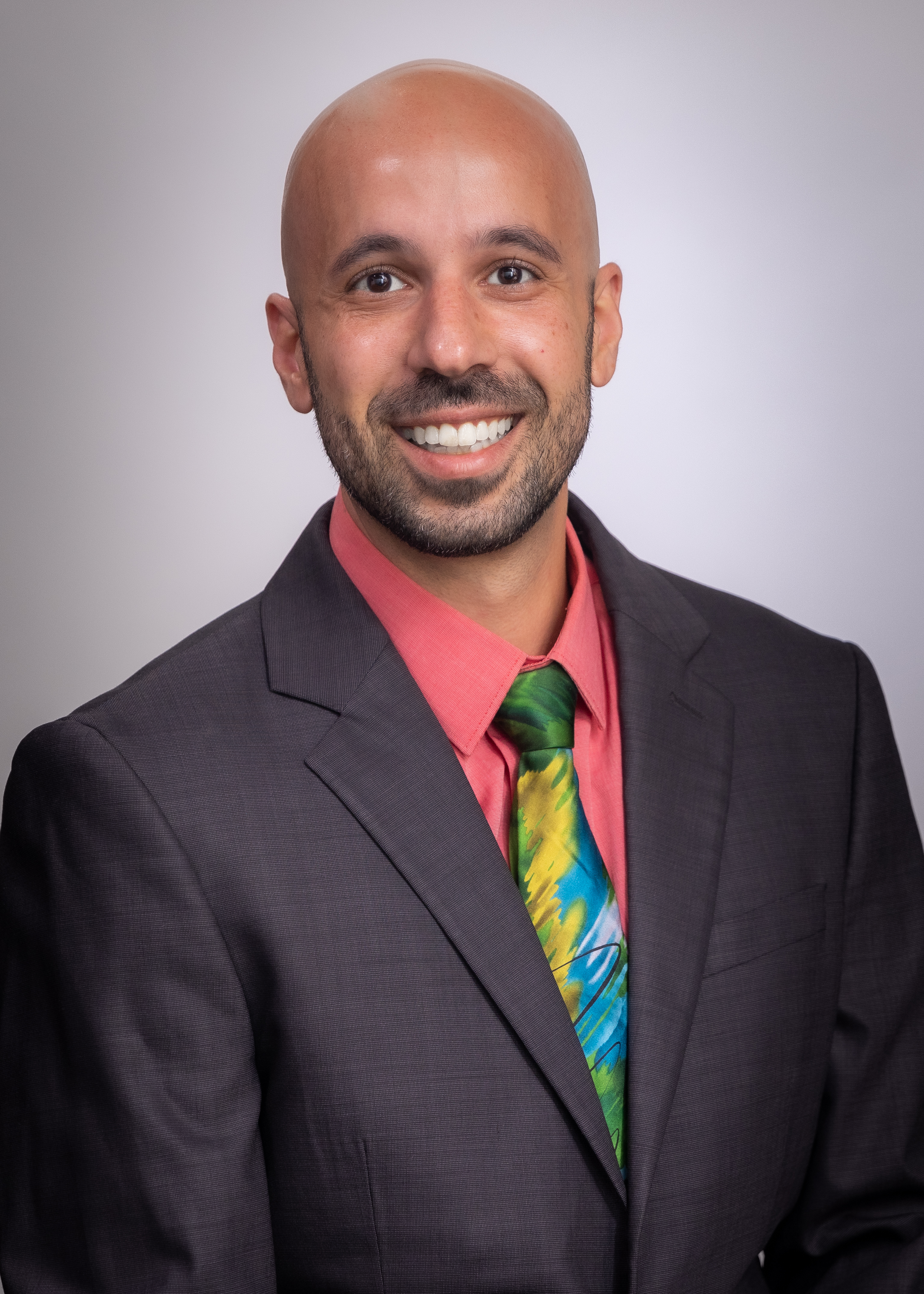
UNM fellows get to see the impact they can have as forensic psychologists, with people and with policy. The gorgeous landscape, cultural diversity, & affordable cost of living of New Mexico also sets up our fellows to enjoy life in and out of work. It’s a great training opportunity with a great set of people!

As a UNM fellow, I was encouraged to think about the intersection of law and psychology in a holistic way. It was so gratifying to be able to reflect on the issues I encountered, while assessing defendants in real time, to affect relevant change on the policy side. I also gained deeper understanding of the unique and diverse needs of the populations we serve. Thanks to the training and my excellent supervisors, by the end of the fellowship I felt fully prepared to step into my professional role as a forensic psychologist.
UNM forensic fellows train in different settings with a diverse set of people, developing an expansive set of forensic skills along the way. Fellows on the Adult Forensic Track will conduct court-ordered competency evaluations for the New Mexico Second Judicial District Court (SJDC) Competency Clinic, which involve clinical and forensic interviews; administering, scoring, and interpreting psychological measures; authoring forensic evaluation reports; providing testimony and/or recommendations in court cases and hearings; and providing peer consultation/supervision. Additional clinical training in evaluations addressing first-responder suitability (e.g., police, fire and rescue), psychological fitness for duty, civil disability, additional legal competencies, and other psycholegal questions (spanning a diverse landscape of New Mexico jurisdictions) may be available. Fellows on the adult forensic track may also receive training in youth forensic evaluation offering services in the youth forensic track.
Fellows on the Youth Forensic Track will conduct juvenile competency evaluations for the Children, Youth, and Families Department of the State of New Mexico. These evaluations involve clinical and forensic interviews; administering, scoring, and interpreting psychological measures; engaging with parents/caregivers; authoring forensic evaluation reports; providing testimony and/or recommendations in court cases and hearings; and providing peer consultation/supervision. Additional clinical training in youth-related forensic issues addressing amenability to treatment, risk assessment and sentencing considerations (“mitigation evaluations”), and other psycholegal issues affecting legally involved youth may be available. Fellows on the youth forensic track may also receive training in adult forensic evaluation offering services in the adult forensic track.
Because of unique forensic statutes and infrastructure of New Mexico, forensic fellows can expect advanced training in malingering assessment, forensic assessment measures, cultural conceptualization, and complex forensic conceptualization skills that will prepare them for board certification.
Fellows also have the unique opportunity to directly contribute to forensic policy advocacy and change with the New Mexico’s Behavioral Health Services Division of Health and Human Services (BHSD). Through conducting policy analysis; participating on state policy commissions (e.g., the Sentencing Commission Legislative Committee); consulting on forensic policy-related issues with BHSD administration; and collaborating with state legislators, judges, attorneys, community program directors, and others, fellows gain unique experience working in and improving our forensic mental health system. Collaboration with our forensic research faculty and additional contribution to ongoing forensic policy initiatives with the Behavioral Health Services Division and other state agencies may also be arranged.
Click here for more information about the fellowship in our brochure!
Get more details about the program, living and working in Albuquerque, and the expert, multidisciplinary faculty you’ll be working with.
Salary for the fellowship year is determined according to NIH guidelines.For FY 2025 the base stipend is $62,232.00 plus benefits (PTO, sick time, medical insurance, etc.), depending on experience. We will update with the FY 2026 figures as soon as we receive them. Fellows have also long received a professional development fund that covers expenses related to the EPPP exam, attaining licensure in New Mexico (e.g., licensure application fees), and attending the American Psychology-Law Society Conference.
The Fellowship represents a 12-month commitment with a start date in September 2026 (typically as early in September as possible). Commencement and termination date are somewhat flexible based on individual circumstances. For the 2026-2027 training year, we will hire up to four forensic postdoctoral fellows (up to three in the adult forensic track, up to one in the youth track).
Post Doctoral Fellowship Policy—Read First
Additional Information about Postdoctoral Fellowships at UNM
Fellows attend University of New Mexico’s widely acclaimed Law & Mental Health Didactic Series. The series is taught by internationally recognized experts in mental health and law and covers a breadth of topics in forensic assessment, forensic ethics, diversity-related issues in forensic practice, forensic rehabilitation, and more. The series is attended by hundreds of professionals and trainees in behavioral health, medicine, social work, and law each week and serves as didactic training for many residencies and internships outside of UNM. Fellows will also present in this series and be introduced to our international audience during the fellowship year!
Additional Educational Training
Fellows also receive direct didactic training weekly with UNM forensic faculty. The curriculum is developed with the ABFP board certification examination in mind to prepare fellows as experts in forensic case law, practice, ethical, and cultural issues. Fellows also serve as an expert witness in a simulated trial using an evaluation completed during fellowship. The supervisor for the case works with you and the retaining attorney to prepare you for direct examination, and another forensic psychologist works with the opposing attorney to develop cross examination questions. This experience helps fellows prepare to be an effective expert witness and discuss their clinical work in an adversarial courtroom.
More information about the forensic team that contributes to the forensic fellowship is available here and in the fellowship brochure.
Anthony Perillo, PhD
Training Director
Associate Professor, Department of Psychiatry & Behavioral Sciences
Jeffrey N. Younggren, PhD, ABPP
Co-Director
Clinical Professor, Department of Psychiatry & Behavioral Sciences
Randy Otto, PhD, ABPP
Chief, Division of Forensic Behavioral Sciences
Professor, Department of Psychiatry & Behavioral Sciences
Kaisa Marshall, PhD
Research Assistant Professor, Department of Psychiatry & Behavioral Sciences
Jen Perillo, PhD
Associate Professor, Department of Psychiatry & Behavioral Sciences
Jorge Varela, PhD
Vice Chair of Education
Professor, Department of Psychiatry & Behavioral Sciences
Maeve Cardwell, PsyD
Research Assistant Professor, Department of Psychiatry & Behavioral Sciences
Anita Mesa, LCSW
Deputy Director, Behavioral Health Services Division, State of New Mexico
Alenna Padilla, BA
Forensic Program Coordinator, Behavioral Health Services Division, State of New Mexico
Olivia Shadid, MD
Assistant Professor, Department of Psychiatry & Behavioral Sciences
Megan Shedd, MD, MPH
Correctional Psychiatrist, University of New Mexico Health Sciences Center
Elizabeth Bryant, PsyD
Dr. Elizabeth Bryant is a forensic psychology postdoctoral fellow in the Youth Track at the University of New Mexico School of Medicine's Department of Psychiatry and Behavioral Sciences, where she conducts juvenile competency, amenability, and mitigation evaluations, as well as adult competency evaluations. Dr. Bryant earned her bachelor's degree in Psychology and Forensic Science from Syracuse University and her PsyD in Clinical Psychology from Indiana University of Pennsylvania. She completed her predoctoral internship at the Federal Bureau of Prisons Federal Correctional Institution in Englewood, Colorado. With over five years of experience in clinical, forensic, and correctional settings, Dr. Bryant has conducted evaluations for juvenile court, family court, and state and federal criminal courts. She is particularly interested in how developmental factors, including autism spectrum disorder, learning disorders, and intellectual and developmental disabilities, influence youth involvement in the justice system. Outside of work, Dr. Bryant enjoys spending time outdoors with her dog and trying everything with green chile.
Valeria Paniagua, PsyD, LPC, CADC-I
Dr. Valeria Paniagua earned her PsyD in Clinical Psychology from Pacific University in Hillsboro, Oregon, and her Master’s in Community Counseling from Lewis & Clark College in Portland, Oregon. She is a licensed professional counselor (LPC) and a certified alcohol and drug counselor (CADC-I) in the state of Oregon, with additional training in gambling, addiction, and eating disorders. Since 2008, Dr. Paniagua has provided assessment and treatment services to a diverse range of clients in inpatient, outpatient, medical, and forensic settings. Her clinical experience includes working with individuals affected by brain-related conditions such as dementia, traumatic brain injury, stroke, epilepsy, concussion, and toxic exposure, as well as a wide range of psychiatric and medical diagnoses.
As a first-generation Latina in psychology, Dr. Paniagua brings both professional expertise and deep cultural awareness to her work. She completed her doctoral internship training with New Mexico Psychology Internship Consortium (NMPIC) at the New Mexico Behavioral Health Institute (NMBHI) and currently serves as a postdoctoral fellow in forensic psychology at the University of New Mexico. Her work reflects a dedication to equity, justice, and compassionate, evidence-based practice.
Natalie Ross, PsyD
Dr. Natalie Ross is a forensic psychology postdoctoral fellow at the University of New Mexico School of Medicine’s Department of Psychiatry and Behavioral Sciences, where she completes competency to stand trial evaluations and research to inform policy development. She earned her bachelor’s degrees in psychology and Spanish from Mercer University and worked in a children’s home with juvenile sex offenders prior to pursuing her doctorate. She completed her predoctoral internship at Atascadero State Hospital, a maximum security forensic psychiatric hospital, and earned her Psy.D. in clinical psychology from Indiana University of Pennsylvania. Dr. Ross has conducted forensic evaluations with adults and juveniles within civil and criminal courts under the supervision of a licensed psychologist.
Surabhi Swaminath, PhD
Dr. Surabhi Swaminath is a forensic psychology postdoctoral fellow at the University of New Mexico School of Medicine’s Department of Psychiatry and Division of Forensic Behavioral Sciences. She earned her bachelor’s degree in psychology from Saint Louis University and her master’s and Ph.D. in clinical psychology from the University of South Dakota. She completed her clinical internship with the Office of Forensic Mental Health Services in Tacoma, Washington. Her professional work spans research, psychological assessment, and policy, with a focus on bridging empirical science and forensic practice to improve outcomes within the legal system.
Our previous fellows have gone on to do incredible work in the field of forensic psychology. Immediately after fellowship, 50% of our fellows worked as academic medical center faculty (usually a mix of forensic assessment, training, and research), 40% worked in primarily forensic practice positions, and 10% worked in forensic policy analysis.
Here’s what our fellows are doing since their UNM fellowship.
2018 - 2019 Samantha Guzman, PsyD, Assistant Professor, University of Texas Health Sciences Center at Houston
2019 - 2021 Alexander Kuhl, PsyD, Owner/CEO & Forensic Psychologist, Kuhl Clinical & Forensic Psychological Services, LLC; Forensic Psychologist, Stein Forensic Facility (Nevada)
2020 - 2021 Bronwyn Neeser, PsyD,Owner/CEO & Behavioral Health Policy Consultant, Hive Consulting Firm, LLC (New Mexico)
2021 - 2022 Emma Hamilton, PhD, President & Forensic Psychologist, Hamilton Forensic Psychology, Inc. (California)
2021 - 2022 Tatiana Matlasz, Ph.D., Associate Director, Court Psychiatric Clinic, Cuyahoga County Court of Common Pleas (Ohio)
2022 - 2023 Anna Feinman, Ph.D., Research Assistant Professor, Medical University of South Carolina
2022 - 2023 Unnati Patel, PhD, Forensic Psychologist, Youth Justice and Forensic Psychiatric Services, Vancouver BC
2023 - 2024 Cassie Brown, PhD, Staff Psychologist, California Department of State Hospitals- Napa
2024 - 2025 Maeve Cardwell, PsyD, Research Assistant Professor, Department of Psychiatry and Behavioral Services, University of New Mexico
2024 - 2025 Andrew Cecil, PsyD, Forensic Evaluator, Lake’s Crossing Center (Nevada)
Application Qualifications
Demonstrate the following minimum qualifications:
Other highly regarded qualifications:
Our fellowship team is committed to increasing diversity among healthcare professionals and leaders in New Mexico.
How to Apply
Email the following materials to Anthony Perillo, Ph.D., Fellowship Training Director (APerillo@salud.unm.edu) by December 31, 2025:
Interviews for the 2026-2027 fellowship positions will all be conducted remotely (Zoom). We plan to make interview offers in mid-January and schedule interviews for late January 2026.
Check out our educational offerings for trainees, providers, and the public including Grand Rounds, Law and Mental Health, webinars with CEUs/CMEs, and more

Visit the state’s wonderful tourism website for stories and videos about living in the Land of Enchantment
Training Director
Anthony Perillo, PhD
Psychiatry and Behavioral Sciences
2400 Tucker Avenue N.E
1 University of New Mexico
MSC09-5030
Albuquerque, NM 87131